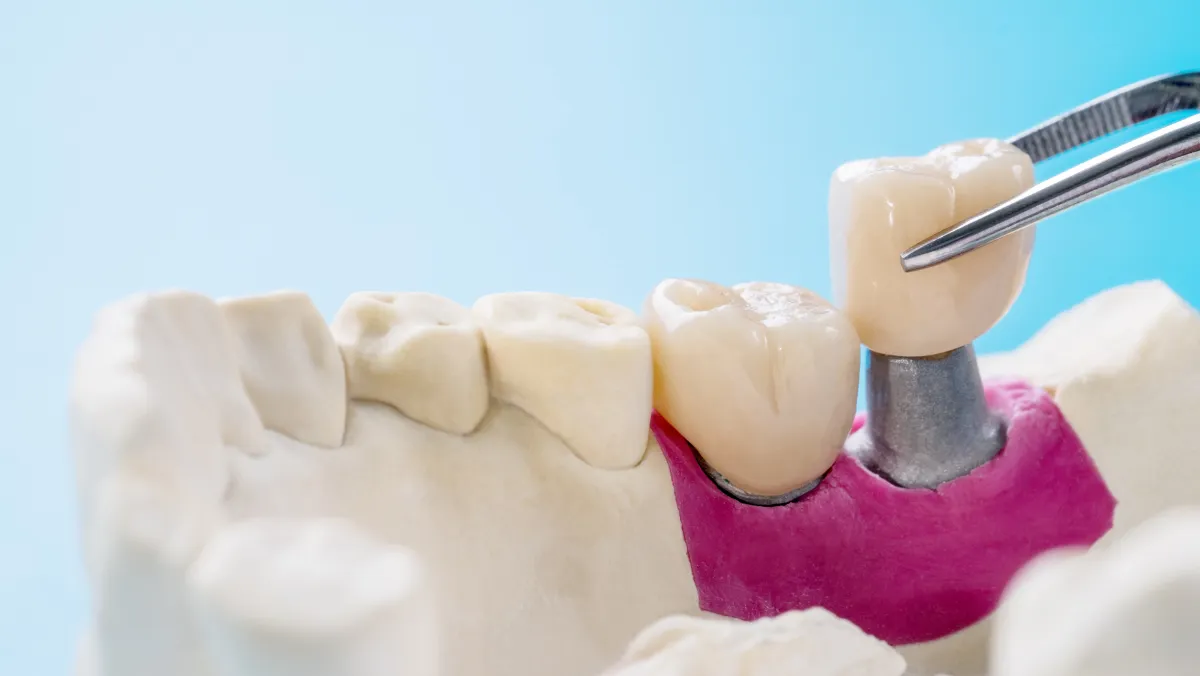
Safety Rate
Safety Rate
Zirconia crowns are a modern solution in restorative dentistry, known for their exceptional strength, durability, and lifelike appearance. Designed from zirconium dioxide, a highly resilient ceramic material, these crowns provide both function and aesthetics, making them an excellent choice for individuals seeking long-lasting dental restorations. Unlike traditional crowns, zirconia combines toughness with a natural translucency, closely mimicking the look of natural teeth.
Their popularity has grown significantly in recent years, especially as patients and dental professionals increasingly prefer metal-free alternatives. Zirconia crowns resist wear, fracture, and staining, offering reliability even in high-pressure areas such as molars. With the ability to be custom-shaped and color-matched, they integrate seamlessly into the mouth, ensuring both comfort and confidence. Whether chosen for cosmetic enhancements or restorative needs, zirconia crowns represent a balance of innovation, beauty, and performance in modern dental care.
Zirconia crowns are dental restorations crafted from zirconium dioxide, a durable ceramic material. They are widely used to protect damaged teeth, restore shape, and enhance aesthetics. Unlike traditional metal-based crowns, zirconia offers a natural tooth-like appearance while maintaining excellent strength. Dentists often recommend them for patients requiring long-lasting, metal-free solutions. Zirconia crowns can be applied to both front and back teeth, ensuring durability for chewing functions and a seamless look for visible smiles.
Zirconia crowns come in different variations, tailored to specific dental needs and cosmetic preferences. Each type has unique properties that make them suitable for particular treatments.
By offering different types, zirconia crowns can meet diverse requirements, whether prioritizing beauty, function, or a balance of both. Dentists carefully evaluate each patient’s needs before recommending the right option.
Zirconia crowns are highly valued for their numerous benefits, making them a preferred choice for many dental patients.
Overall, zirconia crowns provide a combination of strength, comfort, and aesthetics, making them an excellent option for both functional restoration and cosmetic enhancement. Their reliability ensures patients enjoy not only restored dental health but also renewed confidence in their smiles.
While zirconia crowns offer many advantages, it is important to consider their limitations before choosing them.
Despite these drawbacks, many patients still find zirconia crowns worth the investment due to their durability and long-term benefits. Dentists usually weigh the pros and cons with each patient to ensure zirconia crowns are the right fit for their dental needs and expectations.
The process of receiving zirconia crowns involves several steps, ensuring accuracy, comfort, and long-lasting results.
This step-by-step approach ensures patients receive restorations that are both functional and natural-looking. With proper dental care, zirconia crowns can remain strong and effective for years.
The cost of zirconia crowns varies depending on factors such as location, dentist expertise, and specific treatment requirements. On average, zirconia crowns are more expensive than traditional porcelain-fused-to-metal crowns due to their advanced material and fabrication process.
Despite being costlier, zirconia crowns are considered a worthwhile investment due to their durability, aesthetics, and long-term performance. Patients often save money over time by avoiding frequent replacements or repairs. Ultimately, the price reflects the balance between quality, longevity, and the natural appearance zirconia crowns provide.
Zirconia crowns have become a leading choice in modern restorative dentistry, offering a blend of strength, functionality, and natural beauty. They provide reliable solutions for damaged or weakened teeth, ensuring long-term durability while maintaining a lifelike appearance. Patients benefit from their stain resistance, biocompatibility, and ability to withstand heavy chewing forces.
Although they are more expensive than traditional options, zirconia crowns often prove to be a cost-effective solution in the long run. Their versatility makes them suitable for both front and back teeth, delivering lasting results and renewed confidence in one’s smile.
Choosing zirconia crowns is not only about restoring dental health but also about investing in comfort and aesthetics. With proper care and professional guidance, zirconia crowns can provide years of reliable service, enhancing both oral function and appearance.
Zirconia crowns are known for their durability and can last anywhere from 10 to 15 years, sometimes longer with proper care. Their longevity depends on oral hygiene, regular dental check-ups, and lifestyle habits such as avoiding teeth grinding or chewing on hard objects. Many patients experience extended results because zirconia resists chipping and staining, making it one of the most reliable dental restoration materials.
One of the main downsides of zirconia crowns is their higher cost compared to other crown materials. Additionally, while they are very strong, their hardness can sometimes create minor wear on opposing natural teeth. Another challenge is that in certain cases, solid zirconia may not match the translucency of natural enamel as well as porcelain, though layered zirconia options improve aesthetics significantly.
Yes, zirconia crowns are excellent for molars due to their exceptional strength and durability. Molars endure heavy chewing pressure, and zirconia withstands this force without cracking. Their resistance to wear and staining also makes them practical for long-term use in the back of the mouth. Patients benefit from both the functional strength and the natural look, even if the crown is less visible.
There is no strict age limit for zirconia crowns. They can be used for both young adults and older patients who need durable dental restorations. Dentists typically recommend them for individuals with fully developed teeth, usually after adolescence. The choice depends more on oral health and structural tooth requirements than age, making zirconia crowns suitable for a wide range of patients.
The procedure for zirconia crowns is generally not painful, as it is performed under local anesthesia. Patients may experience mild sensitivity or discomfort after the tooth is prepared and the crown is placed, but this usually subsides within a few days. Properly fitted zirconia crowns feel natural, and once the adjustment period is over, patients typically enjoy comfortable and pain-free functionality.
Our experienced anaesthesiologists are here to ensure your safety and comfort